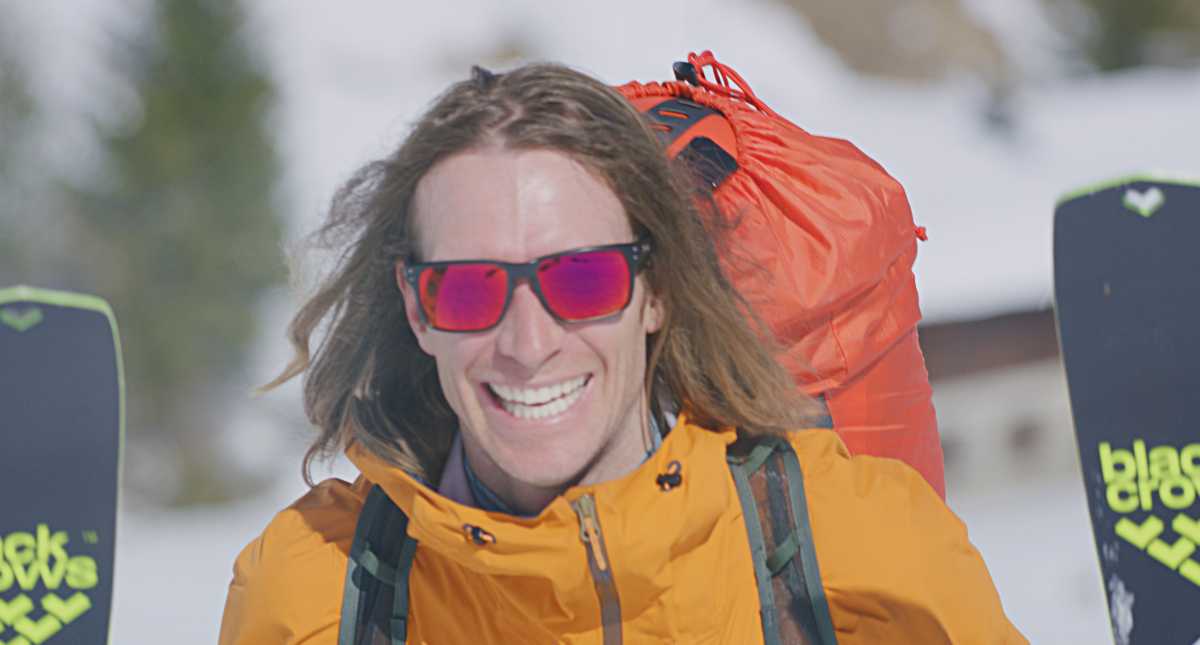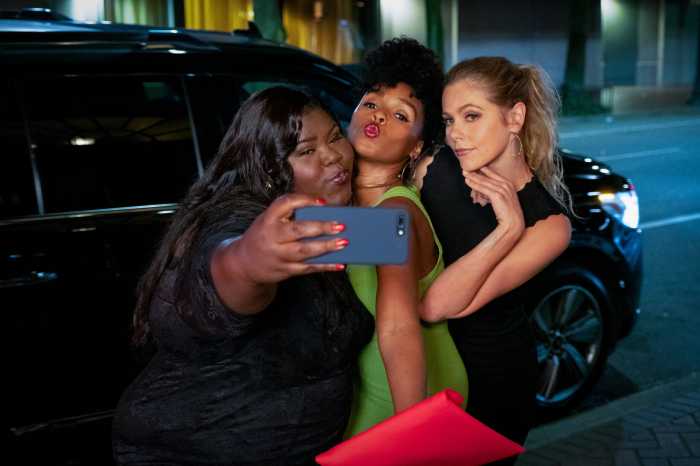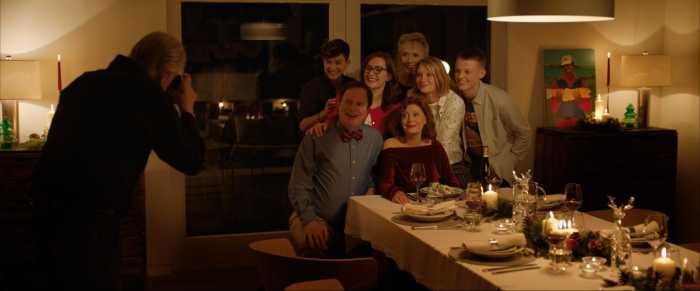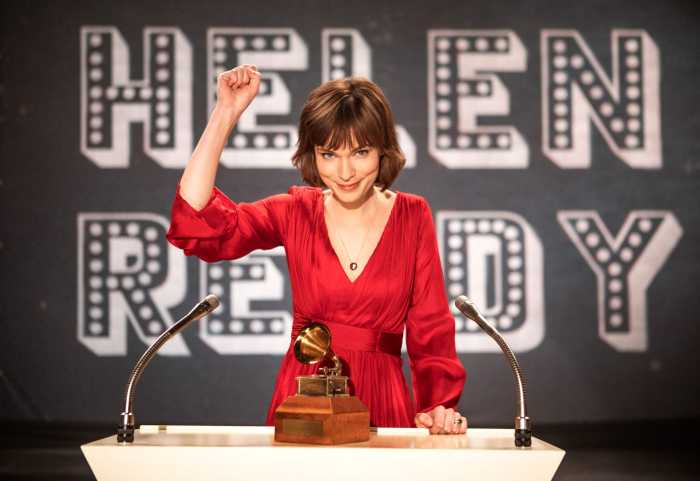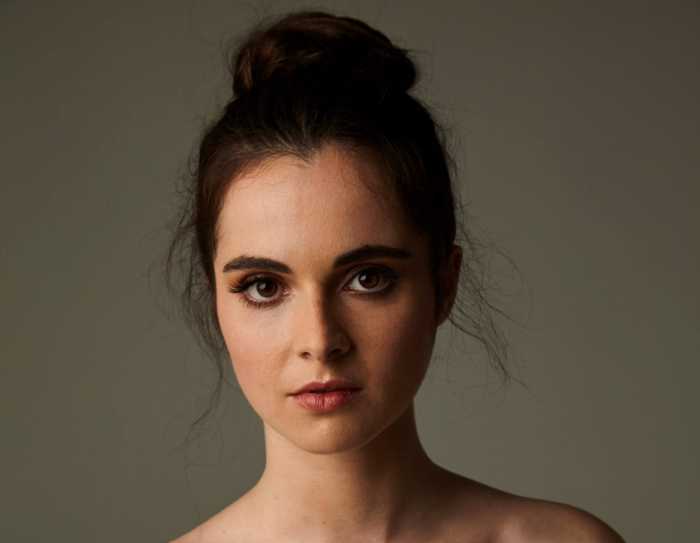Most of us have had childhood dreams, and some of us may have even achieved that passion in their adult lives—like professional skier and B.A.S.E. jumper Matthias Giraud, also known as “Super Frenchie.” Giraud’s childhood dream was to jump off of mountains after hearing tales of the greats who made the extreme sport possible. He saw his first images of base jumping/ski base jumping when he was just 9 years old and even then he knew right away that there was no other choice—that’s how he wanted to live his life.
After meeting filmmaker Chase Ogden at a young age, the duo would go on to meet some hurdles on the pursuit of the documentary film named after Giraud, ‘Super Frenchie.’ But, its that pursuit and passion that fueled the film that also becomes a main character in the documentary. Giraud believed, whether you want to jump off of a cliff or whether you want to start a charity, or take a big trip, if people pursue what’s really important to them, it will be better for their own sake and for everyone around them.
Giraud sat down to discuss what went into making ‘Super Frenchie,’ which explores his life and every emotion that helped him get to where he is today.
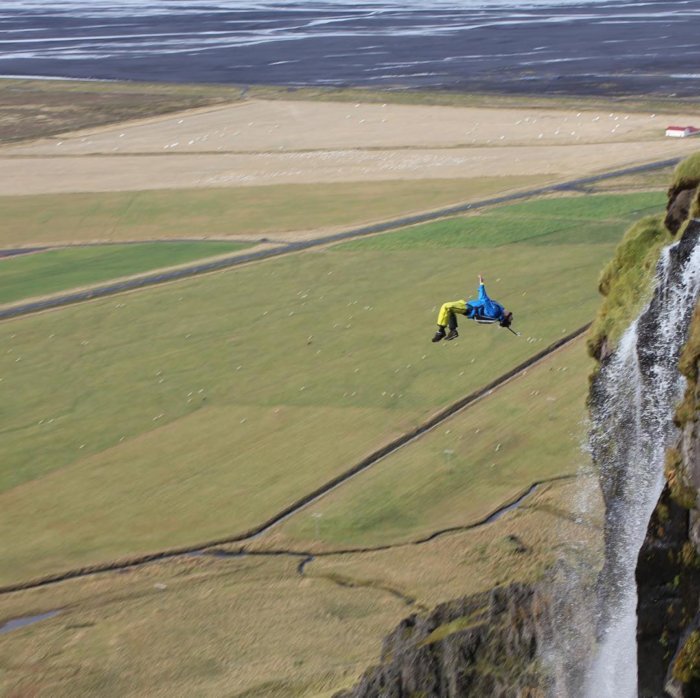
What can you tell me about your relationship with Chase Ogden? I know there was some time from when you met to when the documentary started filming.
In February 2008, I did my first ski base jump off of Mount Hood in Oregon, and it happened to be the first off of Hood, so, it was kind of a historical jump and it got to the media right away. The next day, I’m thrown on ‘Good Morning America’ and CNN and I’m on all of these TV shows. I did an interview with the local affiliates of ABC News in Spokane, Washington, and that’s where Chase was working. I think he was maybe a camera operator or somebody involved in production, and he approached me and said, ‘Hey, I have a show with our local TV channels about the outdoors and I wonder if you can do a couple of episodes with us?’ So, being 24 years old and up for anything, I said absolutely, let’s do it. So, we shot a couple of episodes together.
After that, he was driving me home from skiing from Schweitzer Mountain and he told me he thought it would be really cool if we did a movie together. I think we were both very naive…Chase was younger than me, I think he was 22 and I was 24, but in my mind I was just like oh sure, lets film a movie! We set off in the next year and at this point this was when my career was just starting, and I was beginning to prove myself. At this time we approached legendary ski-base jumper Shane McConkey who had given me a lot of advice. Shane was super excited about the idea, he was going to talk to sponsors and have them finance the movie where [and] originally, the movie was set around Shane as one of the original pioneers and fathers of the sport, and me as the up and coming weird kid from France.
Then, unfortunately, a year later, Shane passed. I was crushed… Shane was one of my heroes. So, we forgot about the movie, we lost the man and we didn’t see a way to do this without Shane. But then a couple of years later, I was still racking up some really cool jumps and I called Chase back and said I think we should do this movie on our own. Chase said I think you’re right, let’s do it. Then, as soon as we started re-filming, I ended up ski-base jumping off the Matterhorn, there was that avalanche and we were getting all of these amazing images. Then the story evolved naturally: I got married, had a kid, had a major accident and came back from it… spending the time those ten years to let the story unravel itself, we didn’t force anything. We let it happen organically.
That clip with the avalanche is one from the film that really stuck with me.
The funny part about that avalanche, people always joke: ‘Oh if there’s an avalanche you’ll be just fine, you jump off a cliff and you fly away.’ But it’s never happened before. Well, this happened and I was filming it and I just realized that this is something that I would never forget. The images still live vividly in my mind for sure.
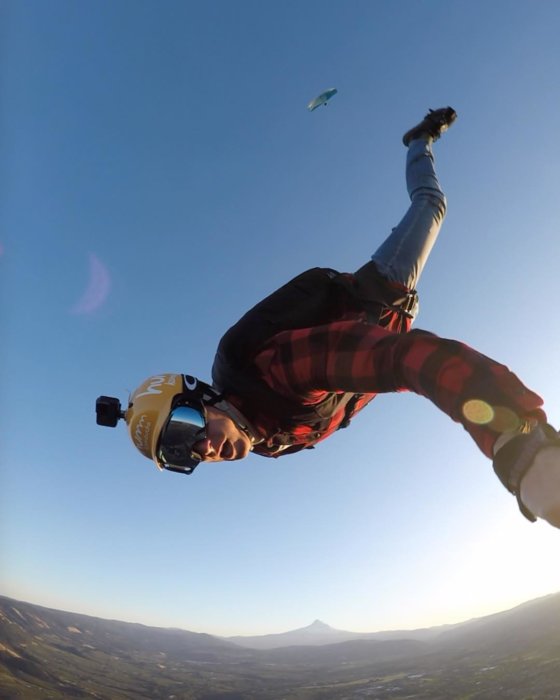
So how do you feel after seeing this documentary about your life?
It’s kind of scary at first… I think Chase knows more about my life than I actually do. It’s kind of an emotional rollercoaster because we talk about the good, the bad and the ugly in there. It is an honest testimonial. We’re sharing the story of honesty and how it actually happened. Chase being the director, he also describes how he experienced the story himself as well just putting all of those images together.
We couldn’t put in every single jump, there are hundreds and hundreds. But I think what’s really satisfying and fulfilling on my end: It’s very interesting to see a summary of your life and by watching this movie, I know that I’m living the life that I’ve always wanted to live as a child and it’s really great to see this. But also I’m a father and I have a child and I think it’s important for my son to also have a movie about the life of his dad to be able to understand it and to comprehend… even if its drastic and maybe absurd in the eyes of some people, [how I] climb mountains to ski and jump off of.
Something I found interesting was your outlook on fear. What has that relationship with fear been like during your life?
I’m actually very happy you are asking this question. It is present in the movie and outlined, but it’s not explicitly explained. If you pay attention to the movie, fear is always there. People who tell you they don’t have fear are completely lying to you and they’re lying to themselves. In the movie, one of those first jumps at Mount Hood, I have this interview where I talk about putting my fear on the side. It’s there but I choose to not dwell on it. Then halfway through the movie, I feel my fear but I’m learning to accept it.
I was trying to control my fear by trying to control my anxiety, because it’s always an emotional rollercoaster doing something daring. But the end of the movie is really when I discovered a place of serenity and acceptance in my craft. When you are engaging with something that is very scary and dangerous, you fully welcome fear with open arms. So, the relationship with fear went from ignoring it, to trying to manage it, to fully accepting it. I think accepting your fear is one of the best things you can do because it is how you connect with your environment and yourself and how you stay sharp. I always say fear is your best friend, because it’s the only emotion that will help you get to your full potential. Instead of ostracizing it like a negative and dirty emotion, embrace it.
What do you hope people take away from this documentary?
One of the main things I’ve learned in skiing and base jumping is that emotions are there to empower you and not impair you. I hope this movie can show that, because when you fully welcome all of your emotions is when you can live a fulfilling life. This is the only way to become a full human being, is by embracing all of your emotions, and fear is a big part of that. There’s only two things you can really hope for in life: A good life and a good death, and if you have both, then you win.
For the others who are maybe turned off by the movie, I respect it. It’s so risky and it’s so out there. But I ask them to maybe have a little more introspection and ask themselves why they might not respect or agree with what’s in there? I think in the end, I hope this movie triggers a thorough introspection into the audience to be able to live honestly and sincerely and not necessarily have a life built on your insecurities, but have a life built on passion.
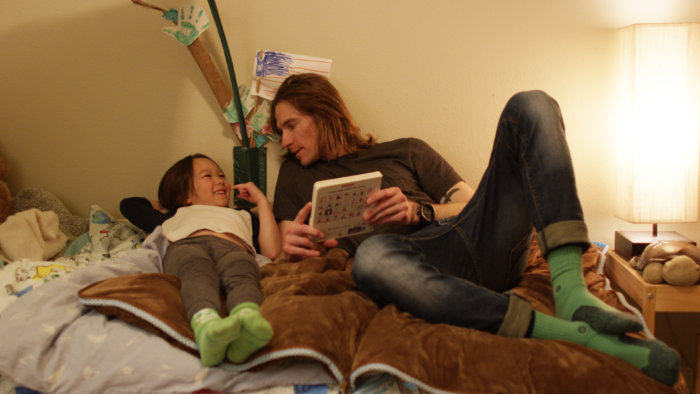
‘Super Frenchie’ will be released in theaters, virtual cinemas, and TVOD June 4.



